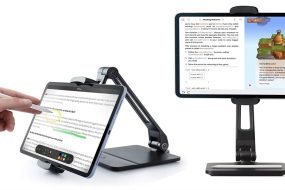
In the vast world of computers, electronics, and technology, finding the right specifications for specific tasks can be overwhelming. Whether you’re a professional or an enthusiast, having the proper equipment can significantly enhance your experience. In this comprehensive guide, we will delve into the recommended specifications for various tasks, including audio headphones, smart home devices, wearable technology, troubleshooting, gaming consoles, the best gaming console, and accessories. So, let’s dive in and explore the optimal specifications that will elevate your tech game!
Audio Headphones
When it comes to audio headphones, different individuals have diverse preferences based on their intended usage, sound quality, and comfort level. Here are the recommended specifications to consider when choosing audio headphones:
1- Headphone Type: There are various types of headphones available, such as over-ear, on-ear, and in-ear. Each type offers a unique listening experience, so choose the one that suits your preferences.
2- Sound Quality: Look for headphones with high-quality audio reproduction, including a wide frequency response range and excellent clarity. This ensures that you can enjoy your favorite music, movies, and games with immersive sound.
3- Connectivity: Consider the connectivity options that best align with your devices. Wired headphones offer reliable and high-fidelity audio, while wireless headphones provide convenience and freedom of movement.
4- Comfort and Fit: Opt for headphones with adjustable headbands and cushioned ear cups to ensure a comfortable fit during long listening sessions. It’s crucial to find a pair that doesn’t cause discomfort or fatigue.
Smart Home Devices
Smart home devices have revolutionized the way we interact with our living spaces, providing convenience, automation, and enhanced control. Here are the recommended specifications to look for when choosing smart home devices:
1- Compatibility: Ensure that the smart home device you choose is compatible with your existing ecosystem, whether it’s Amazon Alexa, Google Assistant, or Apple HomeKit. This ensures seamless integration and ease of use.
2- Connectivity: Look for devices that support Wi-Fi or Bluetooth connectivity, allowing you to control them remotely via smartphone apps or voice commands.
3- Functionality: Determine the specific features and capabilities you desire, such as smart lighting, thermostats, security systems, or entertainment devices. Consider the range of functionalities offered by different smart home devices before making a decision.
4- Security: Prioritize devices with robust security measures to safeguard your personal data and protect your smart home ecosystem from potential vulnerabilities.
Wearable Technology
Wearable technology, including fitness trackers and smartwatches, has become increasingly popular for monitoring health, fitness, and daily activities. When selecting wearable devices, consider the following specifications:
1- Compatibility: Ensure that the wearable device is compatible with your smartphone’s operating system, whether it’s iOS or Android. This guarantees seamless synchronization and data sharing.
2- Battery Life: Look for devices with long-lasting battery life to avoid frequent recharging. Consider your usage patterns and opt for wearables that can keep up with your daily activities.
3- Tracking Features: Assess the tracking features provided by the wearable device. From step counting and heart rate monitoring to sleep tracking and GPS functionality, choose the features that align with your health and fitness goals.
4- Design and Comfort: Consider the design, size, and comfort level of the wearable device. It should fit securely on your wrist or body, be water-resistant if necessary, and have an intuitive interface for easy navigation.
Troubleshooting
Technology can sometimes be unpredictable, and troubleshooting becomes essential when encountering issues. Here are three actionable tips for troubleshooting common tech problems:
1- Restart or Reset: Before diving into complex troubleshooting steps, try restarting the device or performing a soft reset. Often, this simple action can resolve minor glitches or software-related issues.
2- Check Connections: Verify that all cables, wires, and connections are secure and properly plugged in. Loose connections or faulty cables can cause connectivity problems or audio/video issues.
3- Update Software and Drivers: Ensure that your devices have the latest software updates and drivers installed. Manufacturers often release updates to improve performance, stability, and compatibility with the latest technologies.
Gaming Consoles and Accessories
For gaming enthusiasts, having the right gaming console and accessories is crucial for an immersive and enjoyable gaming experience. Here are the recommended specifications to consider:
1- Performance: Look for gaming consoles with powerful processors, ample storage space, and high-quality graphics capabilities. This ensures smooth gameplay and stunning visuals.
2- Game Library: Consider the game library available for the gaming console. Each console has its own exclusive titles, so choose the one that offers the games you’re most interested in playing.
3- Controller Comfort: Opt for gaming consoles with ergonomic controllers that provide a comfortable grip during long gaming sessions. Some controllers offer additional features like customizable buttons or haptic feedback.
4- Accessories: Enhance your gaming setup with accessories such as gaming headsets, controllers with customizable buttons, gaming keyboards, and gaming mice. These accessories can improve your gaming performance and overall experience.
FAQ
FAQ 1: What are the recommended specifications for gaming laptops?
Gaming laptops require robust specifications to handle the demands of modern games. Look for a laptop with a powerful processor, such as an Intel Core i7 or AMD Ryzen 7, ample RAM (at least 16GB), a dedicated graphics card (NVIDIA GeForce GTX or RTX series), and sufficient storage space. A high refresh rate display and good cooling system are also desirable for an immersive gaming experience.
FAQ 2: What are the recommended specifications for video editing workstations?
Video editing tasks necessitate a powerful workstation. Opt for a computer with a multi-core processor (e.g., Intel Core i9 or AMD Ryzen 9), a significant amount of RAM (32GB or more), a dedicated graphics card with ample VRAM, fast storage (SSD or NVMe), and a high-resolution display. Consider investing in external storage solutions for managing large video files efficiently.
FAQ 3: What are the recommended specifications for graphic design computers?
Graphic design requires a computer with adequate processing power and excellent color accuracy. Look for a device with a powerful CPU (e.g., Intel Core i7 or AMD Ryzen 7), at least 16GB of RAM, a dedicated graphics card (NVIDIA GeForce or AMD Radeon), a high-resolution display with wide color gamut support, and fast storage for quick file access.
FAQ 4: What are the recommended specifications for music production laptops?
Music production demands a balance between processing power and storage capacity. Aim for a laptop with a fast processor (e.g., Intel Core i7 or AMD Ryzen 7), a minimum of 16GB RAM (32GB recommended), a solid-state drive (SSD) for quick file access, and ample storage space for storing audio samples and projects. A high-quality audio interface is also essential for professional-grade recordings.
FAQ 5: What are the recommended specifications for everyday use laptops?
For everyday tasks such as web browsing, document editing, and multimedia consumption, a laptop with moderate specifications is sufficient. Look for a device with at least an Intel Core i5 or AMD Ryzen 5 processor, 8GB of RAM, a solid-state drive (SSD) for faster boot times, and a comfortable display size. Consider factors such as battery life and portability based on your usage requirements.
Conclusion
Choosing the right specifications for audio headphones, smart home devices, wearable technology, troubleshooting, gaming consoles, and accessories can greatly impact your overall tech experience. By considering the recommended specifications outlined in this guide, you can make informed decisions and select the devices and equipment that align with your needs and preferences. Remember, thorough research, reading customer reviews, and comparing different options will empower you to make the best choices for your tech journey. So go ahead, explore the possibilities, and embrace the world of cutting-edge technology!
Advertisement









